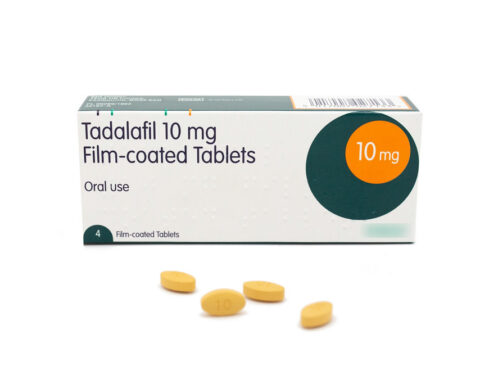One of the most common sex-related problems suffered by men is premature ejaculation. Some studies report prevalence between 9% and 30% depending on age group, ethnicity, race, and sexual experience.
Premature ejaculation can be classified into two groups: primary or secondary. The etiology is not clear yet, but it can be divided into psychogenic causes (anxiety) and organic causes (erectile dysfunction, prostatitis, penis hypersensitivity, thyroid disorders or genetic factors).
The traditional treatment for premature ejaculation includes psychotherapy plus pharmacotherapy. The most frequently used drugs are sertraline, fluoxetine, citalopram, dapoxetine and paroxetine, all of them acting at neurological levels, but a new pharmacological tendency is gaining room: the use of PDE-5 inhibitors. In fact, previous studies have confirmed the effectiveness of sildenafil and vardenafil in the treatment of premature ejaculation.
Dr. Mohammed Abu El-Hamd, from the Faculty of Medicine in Sohag University, Egypt, performed a study titled “Efficacy and safety of daily use of Tadalafil in treatment of patients with premature ejaculation: A randomised placebo-controlled clinical trial” in which he and his team evaluated the effects of a once-daily dose of Tadalafil in the treatment of patients with premature ejaculation.
Study Methods
A single-blind placebo-controlled study was carried out on 100 patients with premature ejaculation. The participants were recruited from the outpatient clinics of Andrology at Sohag University Hospital. After a full explanation of the possible benefits and adverse events from the use of this impotence pill, those patients willing to be a part of the research signed informed consent.
To be considered for the essay, patients must fulfill the criteria for Premature Ejaculation of the International Society for Sexual Medicine, including: ejaculation which always or nearly always occurs prior to or within 1 minute of vaginal penetration, inability to delay ejaculation on all or nearly all vaginal penetrations and negative personal consequences or the avoidance of sexual intimacy.
Patients with the following conditions were excluded from this study: diabetes; prostatitis; renal or hepatic diseases; neurological diseases; and those receiving central nervous system medications.
All patients were randomized equally and assigned into one out of two groups with 50 participants each:
- Group 1, receiving placebo once a day for 6 weeks, and
- Group 2 receiving 5 mg Tadalafil once a day for 6 weeks. All patients were instructed to have sexual relations with effective penetration 2 or 3 times per week.
These men were trained to enlist intravaginal ejaculation latency time using a stopwatch which was held by their female partners. Before and after the treatment, all patients were asked to complete the Arabic Index of Premature Ejaculation, a questionnaire that includes seven items about rate of sexual desire, frequency of hard erections, intravaginal ejaculatory latency time, ability to prolong ejaculation time, satisfaction for the patient and his partner, and the presence of anxiety, depression or stress due to premature ejaculation.
Results
Before treatment, there were no statistically significant differences between the patients in the placebo and Tadalafil groups regarding the mean values of the seven questions and total scores of the Arabic Index of Premature Ejaculation questionnaire.
After treatment, the mean values of the seven items and total scores of Arabic Index of Premature Ejaculation questionnaire in the Tadalafil group were significantly higher than the placebo group.
According to these scores, all the 100 patients had severe premature ejaculation before treatment. After the 6-weeks treatment, only the placebo group patients showed severe premature ejaculation while the patients in the Tadalafil group improved to non-premature ejaculation signs.
All the treatments were well tolerated, despite some negative side effects in the impotence pill group such as headache, back pain, myalgias, dyspepsia and face flushing.
Conclusions
This study concluded that the use of 5 mg Tadalafil once-daily for 6 weeks was effective and well tolerated in the treatment of patients with premature ejaculation. There are central and peripheral mechanisms which may explain the role PDE-5 inhibitors in the treatment of premature ejaculation including the smooth muscle relaxation in some anatomic areas and a peripheral analgesia effect, which increase the duration of the erection and decrease the central sympathetic output, responsible for the ejaculation.
Also, this study found that Tadalafil was well tolerated in the treatment of patients suffering from premature ejaculation with few adverse effects.
Finally, the research team suggests that further studies on larger sample sizes must be performed to establish the safety and efficacy of daily use of Tadalafil for the treatment of patients with premature ejaculations.







